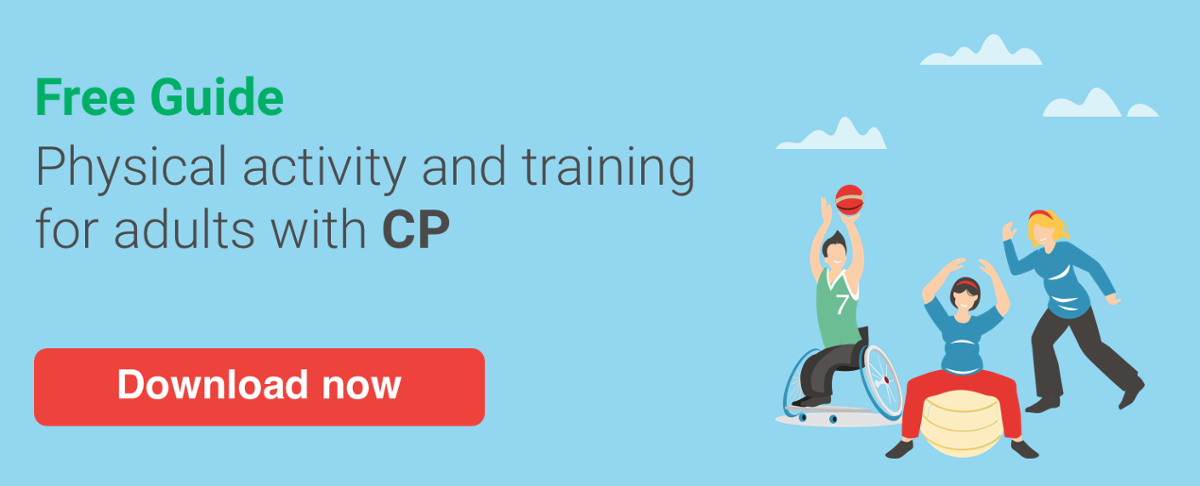/Johannes-1.jpg?width=640&height=334&name=Johannes-1.jpg)
To pursue hobbies and interests, just like everyone else, has always been extremely important to Johannes. So, when his buddies started building body as teenagers, he refused the limitations that were set upon him due to his cerebral palsy.
Johannes is an outgoing and humorous 20-year-old. With CP, classified as GMFCS 4. His social network is large, and to all his friends he’s always just Johannes. “They have never treated me as that guy in a wheelchair. It’s a given that I’m participating in everything they do, and I’m so grateful for their uncomplicated attitude”.
When he was 18, he encouraged his physiotherapist to challenge him more physically. His classmates had physical activity in school, and Johannes wanted to participate, not being isolated for physiotherapy sessions. He didn’t know his body well, or its limitations, and he was ready to assess and confront his condition, going out of his comfort zone.
After the first really hard workout I discovered that I didn’t know my body at all!
- Johannes.
Teaming up with his physio and an amazing assistant, Paal, they put together a strength training program with the objective of working on the big muscle groups, increasing core strength, and gradually, depending on the response of his body, increasing the weight load.

“After the first really hard workout I discovered that I didn’t know my body at all” he laughs, but with determination, they soon saw improvements, and that was a huge motivational boost!
It started in the pool, and there was the first time ever Johannes put weight on his feet. They progressed from half a squat in the pool to now doing sets of 200 squats carrying his own weight and 45 kg in bench.
The Innowalk, a robotic device offering movement in an upright standing position, has been an important supplement in Johannes’s training program. After a hard strength session, the Innowalk releases the tension in the muscles. It enables Johannes to relax better and recover faster.

This has not only made it possible for Johannes to transfer himself from the wheelchair to his bed and the toilet, but after a year of hard training, Johannes took his first steps using parallel bars at the age of 19!
“Now my objective is to be able to walk with crutches, and I know it is achievable, I just need to spend the time it takes”, Johannes explains.
Not long-ago Johannes was home alone for the first time over the night. “That was an incredible feeling of freedom, but not just for me. I know my mom was very touched seeing that this actually was working, also giving her the freedom of doing things on her own, not just taking care of me.”
He matured a lot during that experience, and Paal says Johannes’ confidence has skyrocketed. “We have learned a lot from each other. I have pushed Johannes but is has been just as important that Johannes got the opportunity to find his own limitations. It helps that he’s a bit MacGyver with persistence and an improvisational nature”, smiles a proud assistant.
The undoubtedly proudest is however Johannes himself. “Independence is key to live a whole life. Just being able to spend time alone, with my own thoughts and nurture my individual self is extremely valuable. I think able-bodied people easily forget that, because they take alone-time for granted.
Watch the film of Johannes and get inspired by his determination and will to explore his body beyond his comfort zone.
Johannes’ and Paal’s Tips & Advice to encourage others get started
1) Discuss your desire with a physio and get an assistant or another caregiver onboard the team.
2) Keep an open, humble and continuous communication with your support team on which training is good now and which training would be fit for purpose in a few months.
3) Start very slowly, getting to know your body and how it responds to the exercises.
4) Listen to your body signals, and adjust the training to daily capacity, pain etc. Are you only feeling tired and bored, or does your body actually need rest? It’s a big difference!
5) One important lesson learned from strength training is that pain is temporary. The last repetitions are the most efficient (and painful) ones.
6) Humour is essential. If things get too serious it’s easy to lose motivation. Training should be fun!
7) Be patient. However, strength training is highly motivating, giving steady, small rewards throughout the journey towards your goals.

The author worked as Head of Marketing for Made for Movement for 7 years before she pursued other adventures in her own company. Trine Roald has over 20 years of international experience within a variety of industries. As Head of Marketing for Made for Movement she was passionate about communicating stories and know-how featuring possibilities for improving the quality of life among people with severe disabilities.



